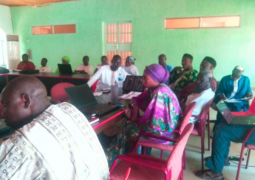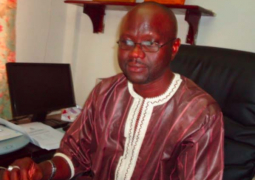Ten years after African heads of state and government pledged in
This was announced by Ademola Olajide, Director at the Social Affairs Department of the African Union Commission.
Olajide was speaking at an expert’s session on initiatives dealing with health, agriculture, risks and Science, Technology and Innovation (STI), as part of the Fourth Joint Meetings of AU Conference of Ministers of Economy and Finance and ECA Conference of African Ministers of Finance, Planning and Economic Development, which ended in Addis Ababa, Ethiopia, on Tuesday.
“The six countries,
Still, according to him, Sub-Saharan Africa’s health investment, which averages at 25 to 27 dollars, is far less than the 40 percent per capita recommended by the World Health Organisation (WHO). He revealed that 32 of the 53 AU member countries invest less than $20 including four of the countries that have met the 15 percent benchmark.
Private sector involvement is so low, according to the health expert, that 82 percent of private spending is accounted for by out-of-pocket spending by households, and some of the poorest countries relied on donor financing by as much as 40 percent.
“Donor funds may not address national health priorities,” he stressed, noting that current mechanisms had led to weakened, ineffective and inefficient health service delivery infrastructure and systems, with a severe shortfall in human resources for health.
He suggested that African countries needed to mobilize additional resources, strengthen risk pooling, spend resources more efficiently, strengthen governance of the health sector and strengthen evidence and data base in order to have policies that matched national needs and priorities.
In a statement at the opening session of the meeting, Dr Babatunde Osotimehin, United Nations Under Secretary General and Executive Director of UN Population Fund (UNFPA), said today Africa accounts for 11 percent of the world’s population, but it is home to two-thirds of those living with HIV and AIDS, half of the world’s women who die during pregnancy and childbirth, and half of the children who die before the age of five.
“The health-related MDGs 4, 5 and 6 to reduce child mortality, improve health and combat HIV and AIDS, Malaria and TB are interdependent and achievable. And they are best addressed through a health system approach that is people-centered and adequately resourced.
“Yet when it comes to financing, many nations are challenged to raise adequate funds to provide quality services that deliver results,” he added.
It would be recalled that in September 2000, 189 heads of state adopted the Millennium Declaration designed to improve social and economic conditions in the world’s poorest countries by 2015.
Subsequently, a set of eight goals were devised, drawing on the Millennium Declaration, as a way of tracking progress. Three of these relate specifically to health, while two more have health components.
In April 2001, heads of state and African Union countries met and pledged to set a target of allocating at least 15 percent of their annual budget to improve the health sector.
Whether these pledges and commitments will be met or not, health experts are of the view that most countries are achieving less than 50 percent of the gains that would be required to reach the goals by 2015, with progress on MDG 5 (maternal health) being particularly slow.





